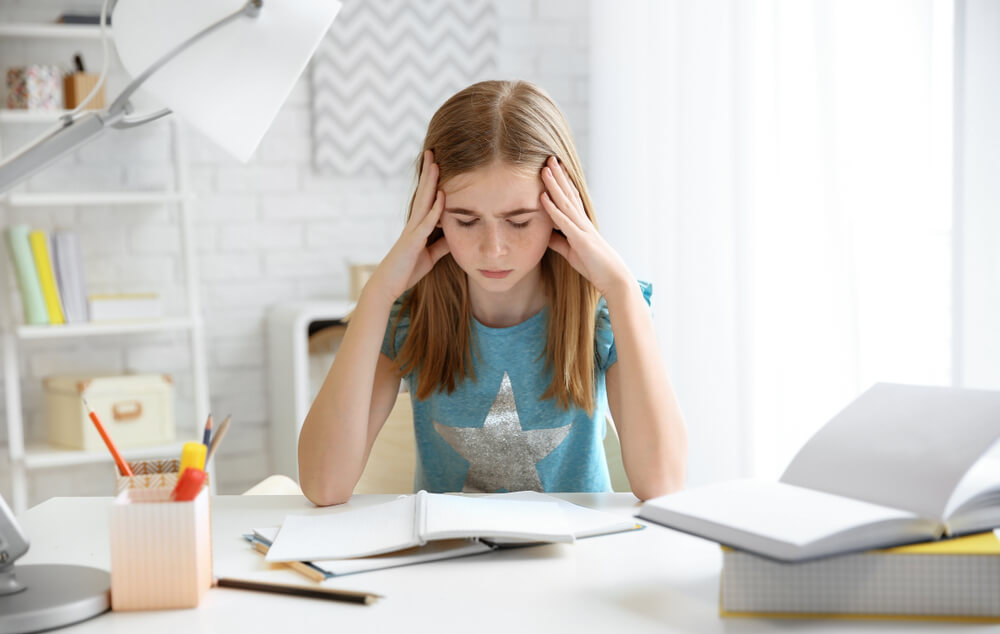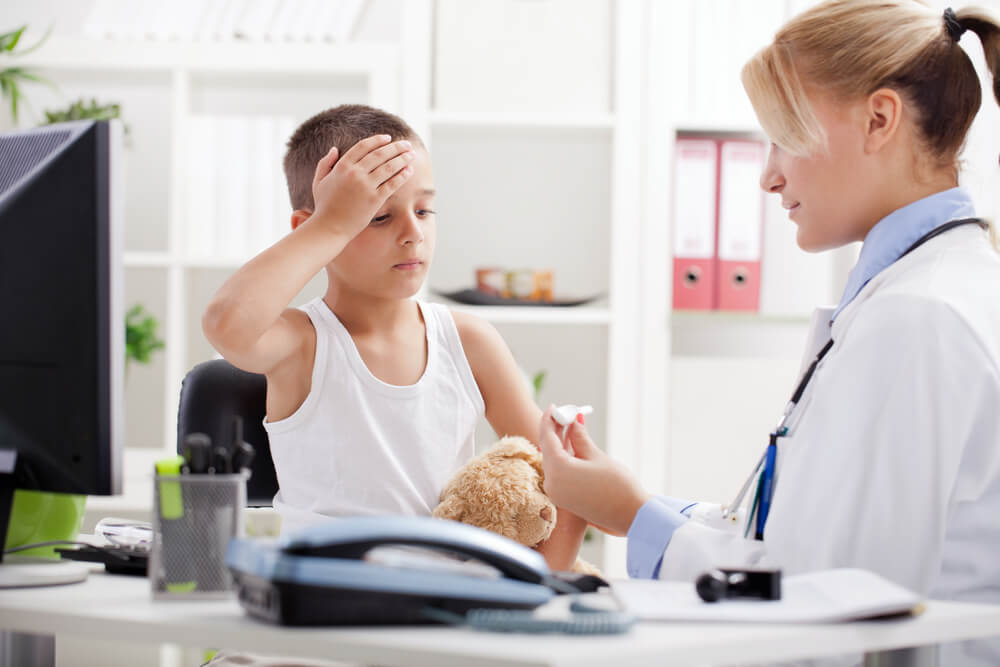A pain in the head or face that feels like a sharp, dull pressure is called a headache. It is a very common occurrence in adults, which can be caused by different factors, from weather changes to a surplus of stress. A headache does not usually last long and can be treated with over-the-counter painkillers or meditation and sleep. Headaches in kids are seen as one of many common childhood illnesses, and today’s article will deliberate more on this topic.
Headaches in children are quite common and not considered too serious. Similar to adults, there is a variety of different forms of headaches, but the most common types include migraines and tension or stress-related headaches, as well as chronic, everyday headaches. Whatever the case may be, general pediatric care in Plantation and Doral, Florida, is one of the best facilities we recommend visiting because speaking to the local specialists about headaches in kids can help you avoid any potential problems in the future.
The causes of kids’ headaches can be various, including infections, high anxiety and stress levels, smaller head trauma, etc. However insignificant the cause might seem to you, make sure you monitor the symptoms of the condition and speak to a doctor if the symptoms worsen and your child starts feeling seriously ill. Childcare centers such as the Worldwide Pediatrics Clinic are the perfect places to get further guidance and advice, so keep them on your preference list.
To influence the symptoms of headaches in children, it is important to recognize the type of headache they are having because what kind of medicine they need and the overall course of treatment will depend on this information and a proper diagnosis.
Causes of Child Headaches

As mentioned, there are many different causes of headaches in general. Very often, it is not clear what the exact cause is, especially if we are speaking about migraine headaches which more often than not simply run in the family, and experts cannot discover the precise source of the problem.
On the other hand, tension or stress-related headaches are said to be caused by more than one factor, and in the past, doctors connected this type of headache with the tension of the muscles in the jaw, neck, head, or scalp. Today, experts believe that a particular change in the chemistry of children’s brains can influence this condition.
Illnesses which include the common cold, flu, and infections of the ear and sinuses, very frequently cause severe headaches. Also, if the child’s head goes through trauma or a head injury, this can be a cause for pain. Consumption of certain foods and drinks, especially foods containing nitrates, i.e., food preservatives, can be headache triggers, as well as soda, sports drinks, and chocolate. Lastly, in rare cases, tumors or abscesses can cause headaches, and if they are followed by additional symptoms, make sure you contact your chosen pediatrician.
Symptoms of Child Headache
Although children can experience the same types of headaches as adults, the symptoms can be a bit different or not last as long. Children also very often cannot explain their sensations and feelings, so it might be hard to give a proper diagnosis of the type of headache they might be experiencing. Below we have listed symptoms concerning four different types of frequent headaches in children so that you can track your child’s symptoms.
- Migraines can be recognized by a throbbing and pulsating pain in the head, nausea, pain in the abdomen, vomiting, severe sensitivity to sounds and light, seeing dark spots and flashing lights, and pain that gets worse if the child starts engaging in any kind of activity.
- Stress-related (tension) headaches involve moderate pain in the neck or head, which does not cause a pulsating sensation or muscle tightness in the neck or head, there is no vomiting or nausea, and the pain does not get worse when the child starts doing something physical. They last from half an hour to a few days.
- Chronic daily headache or CDH is a diagnosis given to patients who experience migraines for more than 15 days every month, and the symptoms are the same as in the case of migraines.
- Cluster headaches are not common for children who are younger than 10. The symptoms include sharp pain on one side of the child’s head, which lasts less than three hours, congestion, restlessness, runny nose, and agitation, and it most often occurs in episodes, from one headache a day to up to eight per day.
As headaches can occur in babies, children, adolescents, and adults, sometimes your child will not be able to share with you their sentiments, so make sure you watch for signs such as them falling asleep at a strange time, being less active than previously, rubbing their head or eyes, being upset or cranky without an evident reason or avoiding noisy rooms and bright light.
Preventing Kids’ Headaches
There are specific steps parents sometimes take to prevent severe headaches in children, and the steps include:
- Creating healthy habits where parents encourage children to sleep more, be physically active, have a high-quality dietary plan, drink a lot of water daily, and avoid harmful substances such as processed sugar, caffeine, trans fats, etc.
- Reduction of stress is crucial for children, so as parents, you should teach children how to use stress relief techniques and how to manage difficult or stressful situations in school and in relation to their peers. Also, if your child is experiencing anxiety, there are always counselors or children’s psychologists you can speak to.
- Avoiding triggers such as harmful foods and drinks, head injuries, etc.
- Keeping a diary of headaches is an excellent way to track your child’s health and write down any potential causes for the pain. This will help the doctor as well because they will have a comprehensive list of changes and factors influencing and potentially causing the pain.
- Listen to your doctor, especially if your child is struggling with severe, daily headaches, which can seriously affect the quality of their life.
Diagnosis and Treatment

Frequent headaches in children are diagnosed through a physical examination and talking to the patient and to you as their parent. After the doctor rules out some other diagnoses, and if there is no need for additional tests and exams, they will recommend over-the-counter pain relievers such as ibuprofen and rest. If these do not help your child after some time, you might have to give them some other type of medicine.
Managing stress is another approach to treating headaches in kids, but make sure you speak to your chosen doctor and follow their instructions.
Children with a family history of migraines, who are a bit older, and girls more often than boys (after reaching puberty) are prone to headaches more frequently.
Call Us!
If you start noticing that your child is complaining about pain in their head, wakes up from sleep due to this, the pain alters their personality, makes them vomit, or starts experiencing fever or neck pain, call us immediately. Headaches in children do not have to be a sign of anything serious, but it is crucial you have all the necessary information and guidance. Contact us today!



